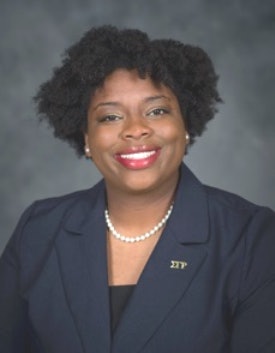With headlines that read Howard University Alumna is ‘Live with Kelly’ Finalist, HBCU Grad Writes Children’s Book on Handling Police Brutality, or HBCU Alum Creates Business that Markets HBCUs, the media knowingly recognizes graduates of historically Black colleges and universities (HBCUs) for their accomplishments and contributions to society. Headlines often identify the individuals as an HBCU alum before even mentioning his or her actual name. While society seemingly appreciates an HBCU education, its alums are rarely hired in the top influential positions—faculty or administration—at HBCUs.
 Megan Covington
Megan CovingtonAs today’s college students grow consistently more innovative and seemingly fearless in placing themselves on the frontlines of social justice movements, there is a definite need for relatable, young leadership to run these schools. Though qualified, some HBCU administrators are actually less effective due to age, outdated leadership styles, ignorance of the importance of the ‘HBCU experience’ and the need for bridging relationships to surrounding African-American communities—often at the expense of both the institution’s and its students’ success.
Adriel Hilton was raised in a family of staunch advocates for HBCUs, many graduating from some of the country’s best—Wilberforce University, South Carolina State University, Florida Memorial University, Southern University and A&M College, and Kentucky State University, to name a few. In addition, a highlight of his youth was attending Florida A&M’s annual homecoming festivities. This particular event, along with listening to the rich conversations of his relatives at family gatherings about their HBCU experiences, molded his decision to attend an HBCU.
In an interview with Wisconsin Public Radio, Hilton spoke about the relevance of HBCUs and how they serve a vital purpose in the U.S. as a conduit for large numbers of African-Americans to attain college degrees. Without these institutions, a significant number would not have access to a postsecondary education. Research indicates that students of color who attend predominantly White institutions (PWIs) experience alienation, adjustment issues, and a lack of faculty relationships. This fact is backed up by author Mychal Denzel Smith, who wrote about his alma mater, Hampton University, in his book, Invisible Man, Got the Whole World Watching:
“There was a strong sense of family at Hampton. That’s true across HBCUs and it’s part of the reason young Black students still choose them. What’s the use of an education if you aren’t cared for as a person? A living, feeling, breathing human being? When so many of us were still the first in our family to go off into the isolated world of higher education, it was comforting to walk into the cafeteria daily and hear, ‘Sweetie, what you like?’”
As the state of HBCUs becomes more fragile, so follows its leadership, due in large part to many senior administrators not being HBCU graduates. As a result, they are unfamiliar with the importance of the ‘HBCU experience’; therefore, they do not understand the relevance and impact of same from matriculation to graduation. In addition, because all HBCUs vary in different aspects, it is imperative that presidents and chancellors include diverse and relatable student practices.
Megan Covington, for example, was urged by her mother to attend an HBCU because of the racism and discrimination she experienced in the K-12 system in southeastern Virginia. As a first-generation college student, Covington had to navigate college on her own at North Carolina Agricultural and Technical State University. She contributes her success to a nurturing faculty and a relatable curriculum that spoke specifically to the Black American experience. Covington praises her HBCU mentors for their continued support throughout her graduate years at PWIs as well as for her motivation to improve the Black community and advocate for the relevance of HBCUs.
 Dr. Adriel A. Hilton
Dr. Adriel A. HiltonThe job of advocacy on behalf of HBCUs can be exhausting for HBCU senior administrators, and the stress can lead to fatigue for those not completely invested, causing them to give up or, worse, allow institutions to crumble under the pressure of combating the plethora of naysayers who deem these institutions as irrelevant and unworthy of state and federal resources. That said, then who would be a better fit to transform the outcome of HBCUs than qualified HBCU graduates—Black intellectuals and scholars who demonstrate a commitment to the work of HBCUs, who are dedicated to advocating the value of an HBCU education, who understand the importance of the ‘HBCU experience’ to all students but particularly first-generation African-American freshmen, and who are committed to bridging higher education to surrounding communities.
Now is the time to bring in the next generation of young, qualified HBCU alums to serve as leaders to infuse a new energy into these institutions and offer new ideas and diverse leadership styles to ensure HBCUs don’t just survive—but thrive—in order to continue educating and graduating future Black leaders.
Megan Covington is pursuing her master’s degree in the Higher Education Student Affairs program at Western Carolina University. Dr. Adriel A. Hilton is director of the Extended Campus, Myrtle Beach Metropolitan at Webster University.


















